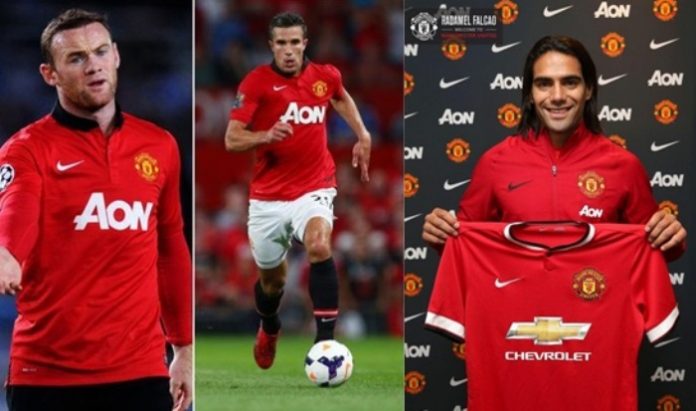
There was much media hype when Manchester United announced the deadline day signing of Colombian superstar Radamel Falcao, with many broadcasters hailing his arrival in the North West of England as a statement of intent from Louis Van Gaal. Here are five reasons why however, his time with the Red Devils is destined to fail
1) His age
At 28 Falcao is now in his prime (not to mention the speculation that Falcao is in fact really 30!) and as conventional wisdom perceives the fully formed performer and there is evidence that this may be too late to successfully debut in the Premier League. In the past the most successful strikers have been slightly shy of their peak; Ruud Van Nistolrooy signed for Man United aged 25, Luis Suarez joined Liverpool at 24 and Jimmy Floyd Hasslebaink debuted in the Premier League for Leeds United aged 25 before re-joining the league with Chelsea three years later. All proved successful and all of them had the advantage of space to grow and mature as a player in the league, something Falcao will not enjoy. The most notable player to join the league in their prime and failed to live up to their reputation would be Andriy Shevchenko, who at 30 years old achieved a paltry 9 premier league goals. Falcao also made his professional debut in the Colombian league for Lanceros at the tender age of just 13 and has already made over 250 senior appearances in his career. A lot of miles on the clock.
2) Injury concerns
Falcao has sustained some quite serious injuries so far in his career and mostly of a similar nature. In 2005/6 season, while at River Plate in Argentina, Falcao injured his knee ligaments twice, an injury that can spell the end of many a career. Minor injuries, the type of which is perfectly normal for any player, occurred sporadically in his time at Porto and Atletico Madrid. Most recently, a serious injury, again with his knee, kept Falcao out for 6 months and from participating at the World Cup finals in Brazil. With three serious knee injuries behind him, how will Falcao cope and adapt to a more physical, faster paced league?
3) Imbalance of Manchester United’s squad
Manchester United’s squad is, by Van Gaal’s own admission, imbalanced. As this season’s games have shown the squad lacks defensive depth (particularly experienced defenders) and there is also the issue of the midfield/forward combinations. Who should play Number 10? Rooney? Mata? Who will play out wide? Can Rooney, RVP and Falcao all play together effectively? This is the sort of problem manger clichés call ‘a welcome headache’ but this is a serious problem for Falcao. All the other attacking players are versatile and can provide assists, something that Falcao cannot as an out and out Number 9.
4) Philosophy – ‘doing things the Manchester United way’
Falcao’s arrival coincided with the sale of academy graduate and England international Danny Welbeck. While Welbeck is far from the same sort of player as Falcao, former Reds defender Gary Neville has expressed concerns that this shows the club is losing its way. While it cannot be doubted that Manchester United fans were not amazed by his capture, signing a huge name in world football, on transfer deadline day, on loan, for a huge fee, on huge wages, when you needed at least two defenders, does signal a shift in policy for Manchester United. One positive is that in the week following transfer deadline day the new United No.9’s shirt accounted for a staggering 33 per cent of all Premier League replica shirt sales globally. Are the Glazers hoping for the Glacticos effect?
5) Why Man U?
Manchester United may well be a firebrand in world football but it is worth considering the following points. Why did one of the best strikers in the world sign for a team in decline? A team that could not offer champions league football? A team that could not, it would seem, demonstrate the system this striker would play in? And why did the likes of PSG, Real Madrid or metropolitan rivals Manchester City not sign Falcao? For the answers, see points 1 – 4.
Add Sportslens to your Google News Feed!